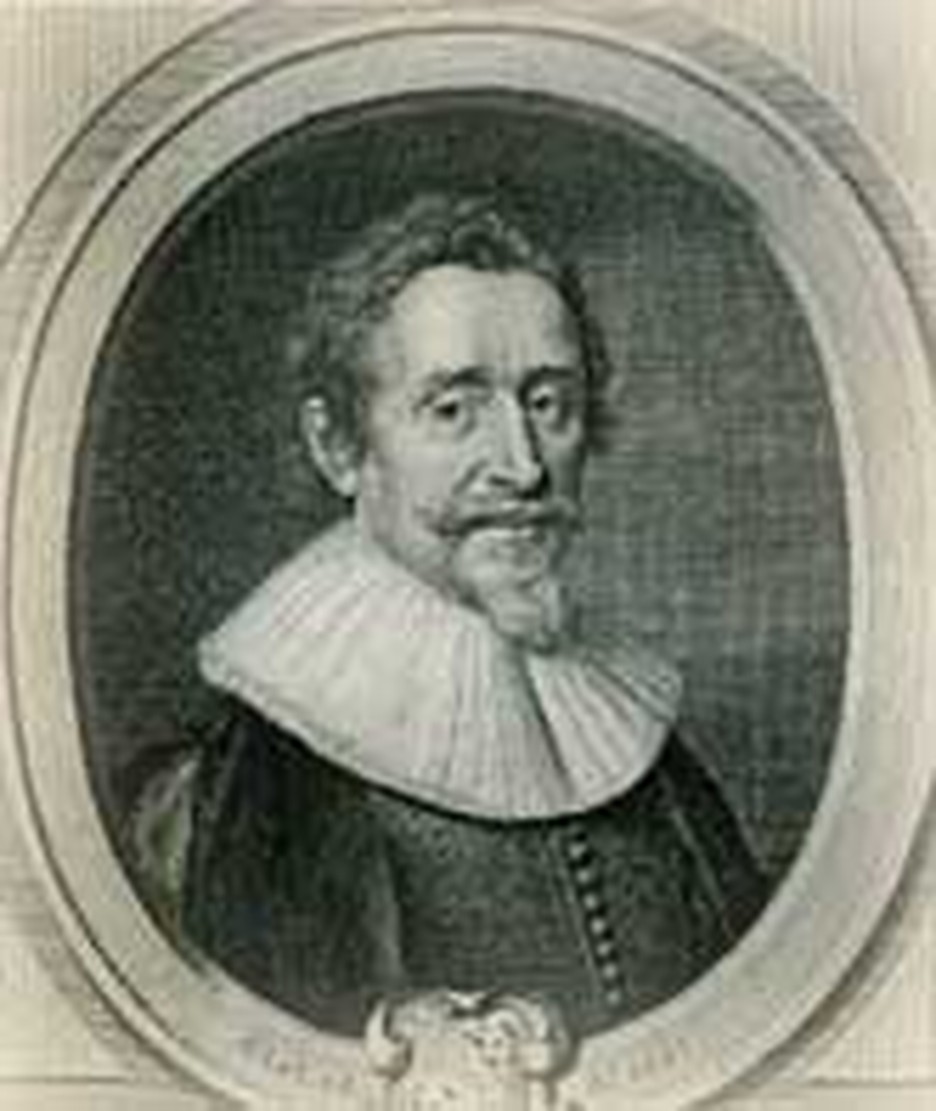
Some men are not able to judge the value of their own work. Hugo Grotius was one such. On his deathbed he lamented the worthlessness of all he had done. He died on this day, August 28, 1645, convinced he was a failure.
Born Huig de Groot, he had latinized his name. He proved to be a precocious lad. At ten he won accolades for his Latin. When eleven he was called "a second Erasmus." At 14 he completely revised Martianus Capella's encyclopedia, having read all the ancient authorities for himself. He followed this with translations of Simon Stevin and Aratus. At 15 he held public disputations and was made attaché to the great John van Barneveld on a crucial peace mission. By 17 he had argued his first legal case and at 22 had written a book (not published) which embodied his legal ideas in embryonic form.
Grotius' first venture into international law was his book Mare Liberum. As its title implies, it argued for freedom of the seas. He took his stand firmly on the rights of man. Grotius' work as a whole is notable for its tendency to escape pedantry. Although he cited massive sources, he also exhibited a great deal of originality and common sense. Mare Liberum was no exception.
The Netherlands entered a period of severe theological disputation. Arminians and Calvinists were at odds. The States General issued an Edict of Pacification to cool tempers on both sides. This failed. Barneveld, Grotius and others saw Prince Maurice of Orange becoming a dictator. They supported the States General in negotiating a twelve year truce with Spain. This infuriated Maurice. When Barneveld and Grotius suggested a peace formula, he had Barneveld executed and Grotius imprisoned for life.
With the help of his faithful wife, Grotius escaped. He was lionized in other European countries. In exile he wrote his most famous book: The Law of War and Peace.
This book was badly needed. Christian Europe was in a tragic flux. Wars of great cruelty ravaged the land. No mercy was shown anyone except by a few enlightened leaders such as Adolphus Gustavus (who admired Grotius' work). To break oath with "heretical" enemies was the norm.
Although a Christian, Grotius relied far less on Biblical arguments than was common for the time. Instead, he showed from Christian and heathen history how the best men of all ages had been merciful and kept faith in international affairs. Three years after his death the Peace of Westphalia in 1648 embodied many of the principles set forth by Grotius. Two hundred years later his work was recognized as the basis of international law. Grotius' greatest efforts were aimed at establishing peace between Christians, but he also wrote an apologetic, Truth of Christianity.
Bibliography:
- Copleston, Frederick Charles. A History of Philosophy. London: Burns, Oates, & Washbourne, 1951.
- Edwards, Paul, editor. The Encyclopedia of Philosophy. New York, Macmillan, 1967.
- Morris, Clarence. Great Legal Philosophers; selected readings in jurisprudence. Philadelphia: University of Pennsylvania, 1981, 1959.
- Runes, Dagobert D. A Treasury of Philosophy. New York: Philosophical Library, 1945; p.445.
- White, Andrew Dickson. Seven Great Statesmen in the Warfare of Humanity with Unreason. New York: The Century Co., 1919, 1910.
- Vreeland, Hamilton. Hugo Grotius; the father of the modern science of international law. New York: Oxford University, 1917. Source of the image.
- Various Encyclopedia and internet articles.
Last updated April, 2007.
.jpg)


.jpg)